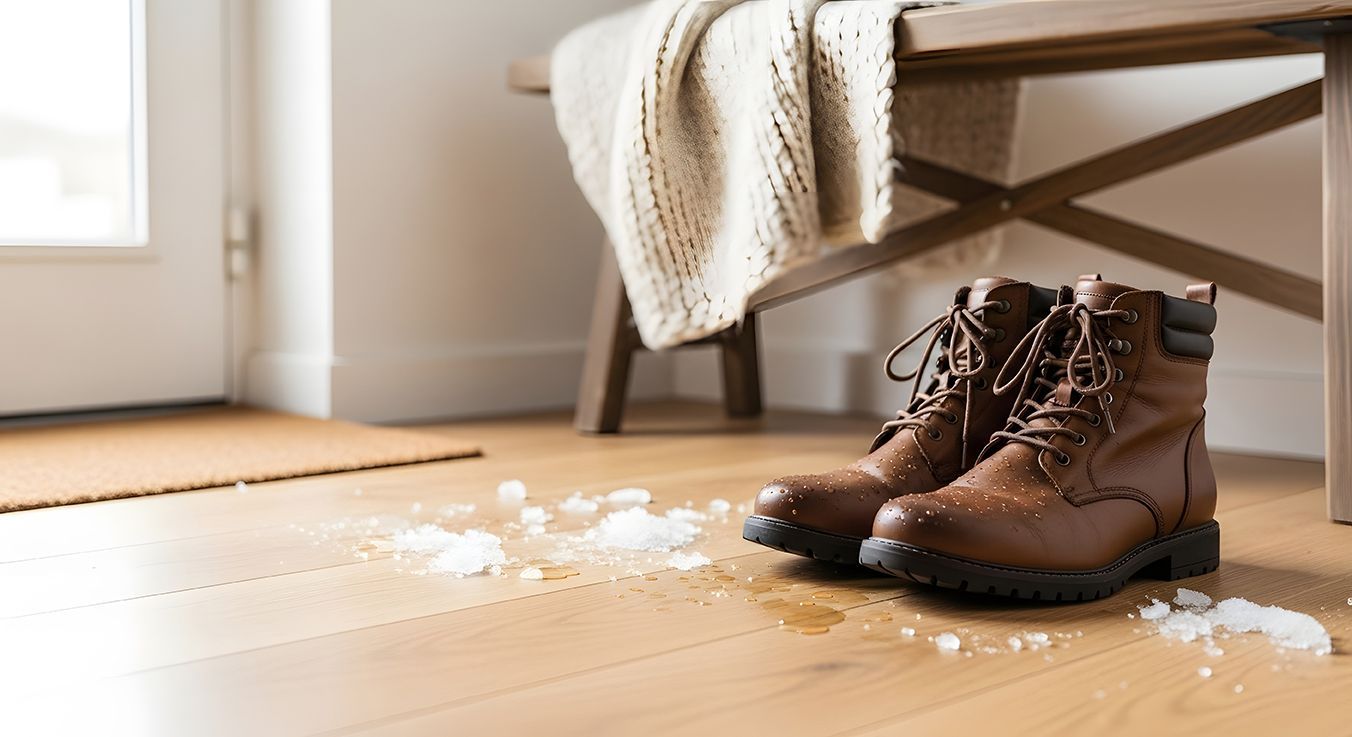Luxury Vinyl Flooring vs. Hardwood: Pros and Cons from Flooring Experts
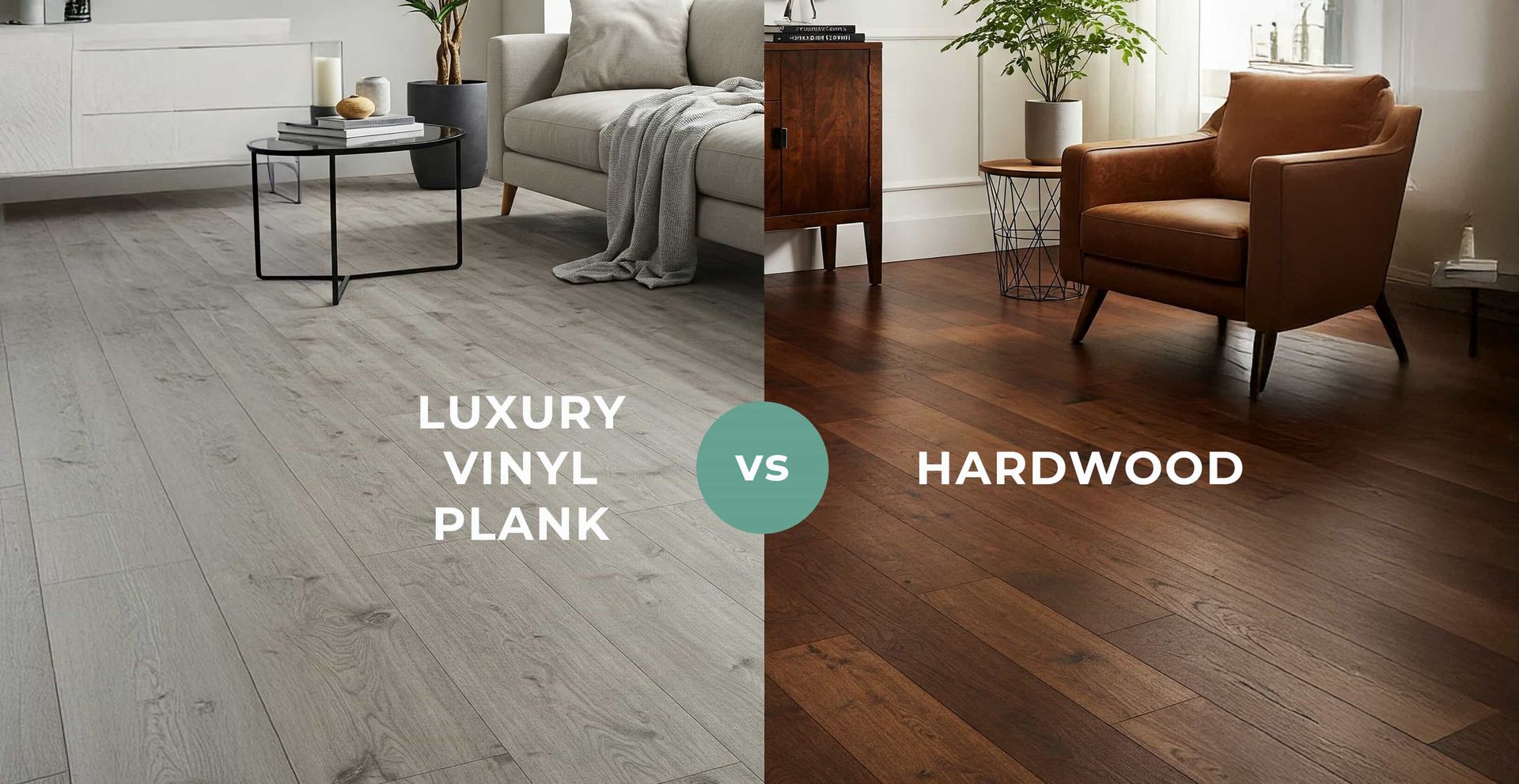
When it comes to transforming your home, few choices make as big of an impact as your flooring. The right floors bring warmth, style, and functionality to every room, setting the tone for how you live and experience your space every day. But with so many options on the market, deciding betweenluxury vinyl flooring and hardwood can feel overwhelming.
At our flooring company, we work with homeowners every day who ask the same question: should I invest in the timeless beauty of hardwood, or opt for the durability and versatility of luxury vinyl flooring? And honestly, there’s no one size fits-all answer. Both materials have incredible benefits, and a few drawbacks, depending on your needs, lifestyle, and budget.
That’s why we’ve put together this in depth comparison of
luxury vinyl flooring and hardwood. By the end, you’ll have a clear understanding of what each option brings to the table so you can choose the perfect flooring for your home.
The Growing Popularity of Luxury Vinyl Flooring
It’s no secret thatluxury vinyl flooring has been steadily gaining popularity over the past decade. Thanks to advances in design and manufacturing, today’s luxury vinyl looks more realistic than ever, mimicking the appearance of natural wood with stunning accuracy.
But the appeal of luxury vinyl flooring goes beyond just looks. One of its biggest strengths is durability. Designed to withstand daily wear and tear, luxury vinyl is highly resistant to scratches, stains, and dents. This makes it an ideal choice for households with pets, children, or high foot traffic.
Another major advantage of
luxury vinyl flooring
is its water resistance. Unlike hardwood, which can warp or stain if exposed to moisture, luxury vinyl is engineered to repel water. Some products are even fully waterproof, giving you peace of mind when installing in kitchens, bathrooms, laundry rooms, or basements where spills or humidity are common.
From an installation perspective, luxury vinyl flooring is known for being quicker and more straightforward than hardwood. Many styles feature click-and-lock systems or adhesive backing that allow for floating or glue down installations without the need for nails or staples. This can speed up the installation process and even make it suitable for certain DIY projects, though we always recommend professional installation to ensure longevity.
Then there’s the price, luxury vinyl flooring tends to be more affordable than hardwood, both in material cost and installation. For homeowners who want the sophisticated look of wood without the higher price tag, luxury vinyl offers an attractive alternative that doesn’t compromise on style.
Ready to upgrade your commercial space with durable flooring?
Schedule a Free In-Home Flooring Consultation Today!
The Timeless Appeal of Hardwood
While
luxury vinyl flooring has its strengths, there’s no denying the timeless charm of real hardwood. Natural wood floors bring warmth, elegance, and authenticity to a space that’s hard to replicate with synthetic materials.
Every hardwood plank has its own unique grain patterns and color variations, adding character and richness to your home. Many homeowners see hardwood as an investment in long term beauty and value, knowing it never goes out of style.
One of the biggest advantages of hardwood is its longevity. With proper care,
hardwood floors can last for decades, even over a century in some cases. And when they start to show signs of wear, they can often be sanded and refinished rather than replaced. This ability to refresh the surface adds to their lifespan and keeps them looking beautiful through changing trends.
However, hardwood does come with some trade-offs. It’s more susceptible to scratches, dents, and water damage than
luxury vinyl flooring. Pets, furniture, and high heels can leave marks, and spills need to be cleaned quickly to avoid staining or warping.
Maintenance is also a factor. Hardwood requires regular cleaning with products designed specifically for wood, and occasional refinishing may be necessary to maintain its finish over time. For homeowners who prefer low-maintenance solutions, this upkeep might be more than they want to take on.
Cost is another consideration. Hardwood floors typically carry a higher price tag, both for materials and installation. While they can increase your home’s resale value, the initial investment is significant, and installation is often more time-consuming.
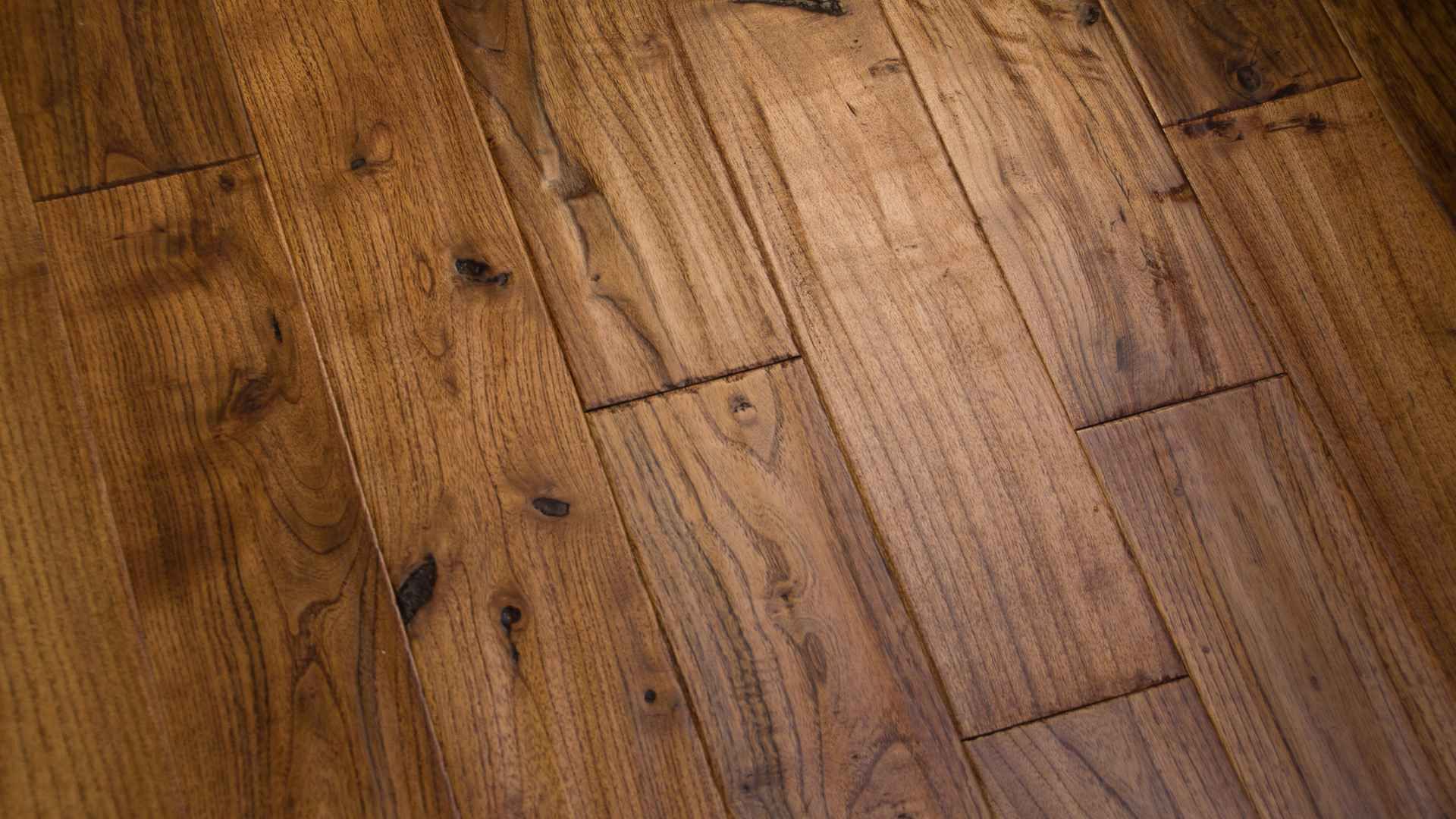
Living with Luxury Vinyl Flooring vs. Hardwood: Everyday Differences
Beyond durability and cost, it’s important to consider what daily life looks like with
luxury vinyl flooring versus hardwood.
One of the biggest day to day benefits of
luxury vinyl flooring is ease of maintenance. Sweeping, vacuuming, or a quick mop with a damp cloth is usually all it takes to keep it looking great. Spills can be wiped up without worry, and you won’t need special cleaners or polishes.
For busy families or homes with pets, this low-maintenance routine is a huge plus. You won’t be stressing over every scratch or spill, and you can enjoy beautiful floors without a lot of upkeep.
Hardwood offers a different experience. It feels warm and inviting underfoot, adds natural texture to your décor, and ages beautifully. But it’s also more delicate. You’ll need to take precautions to avoid scratches and water exposure, use protective pads under furniture, and follow a specific cleaning routine to preserve its finish.
Sound can also be a factor. Hardwood floors tend to amplify footsteps and other noises, especially in rooms without rugs or sound absorbing materials.
Luxury vinyl flooring, on the other hand, has a softer, quieter feel thanks to its layered construction and optional underlayment that reduces sound transmission.
Environmental Impact: How Sustainable Are Luxury Vinyl Flooring and Hardwood?
In today’s world, many homeowners are thinking beyond aesthetics and durability. Sustainability and environmental responsibility have become top considerations when choosing flooring. If you’re wondering how
luxury vinyl flooring compares to hardwood in terms of eco-friendliness, there are some important factors to weigh.
Let’s start with hardwood. One of the reasons hardwood is valued by environmentally conscious homeowners is because it’s a natural, renewable material. Many wood floors are harvested from sustainable forests, and certifications like FSC (Forest Stewardship Council) ensure that the wood comes from responsibly managed sources. In addition, hardwood has the potential for an incredibly long lifespan. Floors that can last 50 to 100 years reduce the need for replacement and additional resource consumption over time.
However, hardwood’s environmental benefits can be offset if it’s harvested from non sustainable sources or shipped long distances, increasing its carbon footprint. Some exotic hardwoods contribute to deforestation if not responsibly sourced. And while hardwood is biodegradable, the stains, finishes, and adhesives used during manufacturing or installation may have environmental impacts as well.
Luxury vinyl flooring, on the other hand, is a synthetic product primarily made from PVC (polyvinyl chloride). While it’s not biodegradable, many manufacturers are making strides to reduce its environmental impact by incorporating recycled content into their products and improving production methods. Some luxury vinyl flooring brands now offer low-VOC (volatile organic compound) products, which contribute to healthier indoor air quality. In addition, because
luxury vinyl flooring has a long lifespan and doesn’t need harsh chemicals for cleaning or maintenance, it may produce fewer environmental emissions over its use compared to other synthetic flooring types.
The recyclability of luxury vinyl flooring is still limited, but some manufacturers offer take-back or recycling programs for old flooring. If sustainability is a priority for you, it’s worth researching specific brands and product lines that prioritize green practices.
Comfort and Feel Underfoot
When evaluating flooring, it’s easy to focus on visuals and durability, but don’t underestimate the importance of comfort. How your floors feel underfoot plays a big role in your daily enjoyment of a space.
Luxury vinyl flooring typically has a softer, warmer feel compared to hardwood because of its multi-layered construction and optional underlayment. This cushioning effect can make it more comfortable to stand on for long periods, whether you’re cooking in the kitchen or playing with kids in the living room. Luxury vinyl also absorbs sound better than hardwood, which reduces noise from footsteps, pets, and general activity, a valuable perk in multi-level homes or apartments.
Hardwood offers a firmer, more solid feel underfoot, which many people associate with quality and craftsmanship. Walking on hardwood delivers a satisfying sense of substance and connection to natural materials. However, it can feel harder on the joints and may not be as forgiving if you drop something or take a tumble. Adding area rugs or padded mats can soften hardwood’s feel in high use areas like kitchens or entryways.
If you’re installing flooring in a space where comfort and sound absorption are priorities, such as a nursery, basement, or home office,
luxury vinyl flooring may offer a slight edge. But for those who prioritize the natural feel and acoustics of real wood, hardwood’s charm remains unmatched.
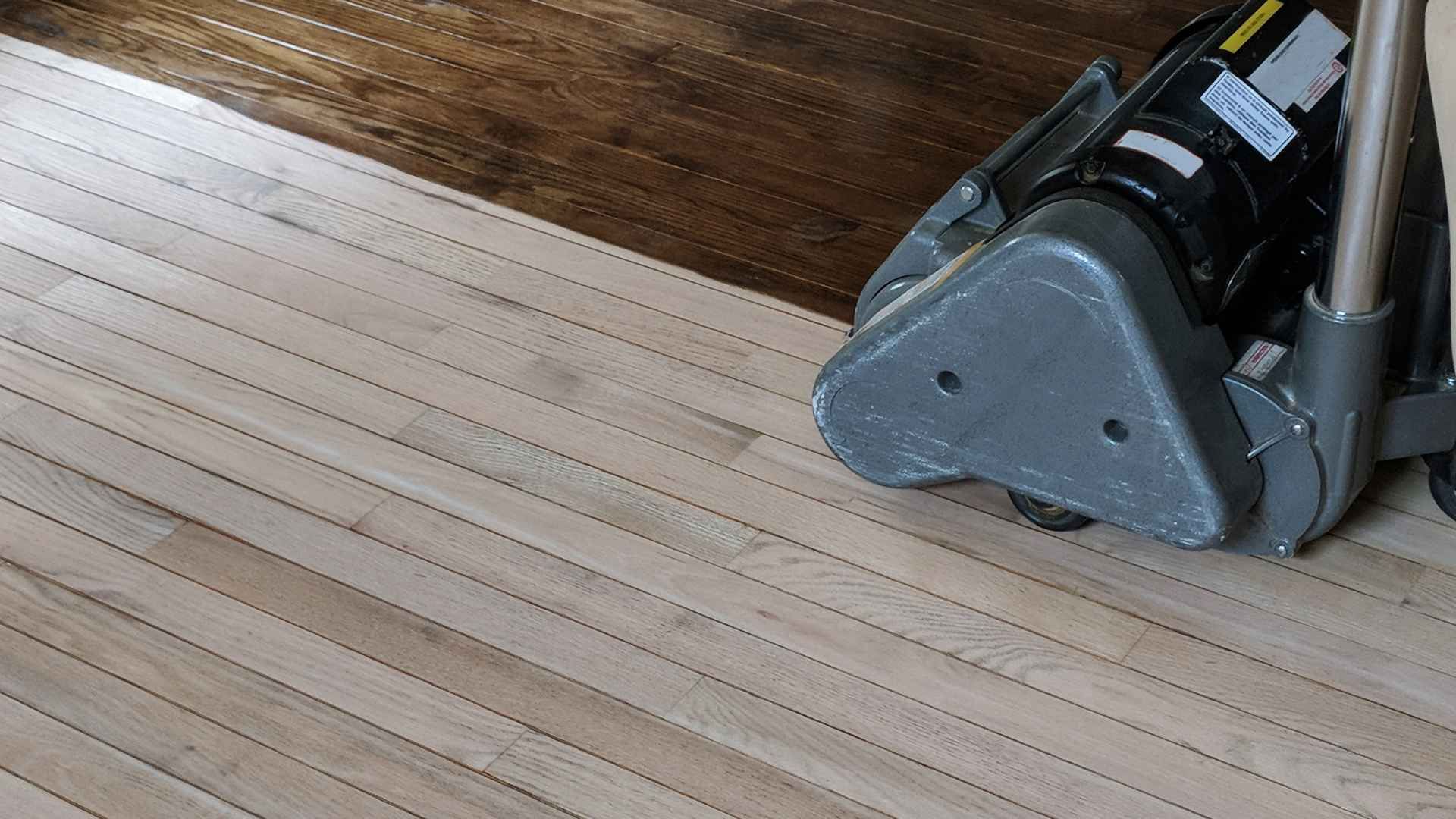
Resale Value: How Flooring Choices Impact Home Value
Homeowners often ask us: “Will choosing
luxury vinyl flooring
hurt my resale value compared to hardwood?” It’s a valid question, and the answer depends on your market, the quality of the flooring you choose, and how well it fits the rest of your home’s aesthetic.
Hardwood floors have long been considered a premium feature that increases home value and buyer appeal. Real estate agents often highlight hardwood in listings, and many buyers are willing to pay more for homes with well-maintained hardwood floors. Hardwood’s reputation for durability and beauty makes it a selling point that can boost offers and shorten time on the market.
Luxury vinyl flooring doesn’t carry the same high-end perception as hardwood yet, but that’s changing. As
luxury vinyl flooring technology has advanced, the quality and realism of modern products have impressed even discerning buyers. High quality luxury vinyl planks that mimic natural wood can be a compelling feature, especially in homes targeting younger buyers who value durability, low maintenance, and waterproof features.
In some cases, choosing luxury vinyl flooring for moisture-prone areas like basements or bathrooms can actually improve a home’s appeal by offering a practical, attractive solution where hardwood would be risky. And in markets where affordability is a top concern, luxury vinyl’s lower cost without sacrificing style can be a competitive advantage.
Ultimately, hardwood still leads in boosting resale value overall, but
luxury vinyl flooring is closing the gap, especially when quality, design, and installation are done professionally.
Installation Considerations: What You Should Know
Another key difference between
luxury vinyl flooring and hardwood lies in the installation process.
Installing hardwood is a more labor intensive, time consuming process. It often requires specialized tools, acclimating the wood to your home’s humidity before installation, and precise nailing, stapling, or gluing. If your subfloor isn’t perfectly level, it may require additional preparation. Once installed, hardwood may need to be sanded and finished, adding more time before it’s ready to use.
Luxury vinyl flooring, in contrast, is designed for simpler installation. Many luxury vinyl products feature click-and-lock systems that allow for floating floors over existing surfaces, including tile or concrete. This can save time and labor costs, especially in remodeling projects where you want to avoid tearing out old flooring. Glue down options are also available for a more permanent installation.
Because luxury vinyl is less sensitive to environmental conditions, it doesn’t require the same acclimation period as hardwood. And since it doesn’t need sanding or finishing after installation, you can walk on it as soon as it’s installed.
However, both types of flooring benefit from professional installation to ensure they perform and last as expected. Even though
luxury vinyl flooring
is easier to install, precise cutting around corners, transitions, and doorways takes skill and the right equipment. Investing in professional installation gives you peace of mind and protects your flooring warranty.
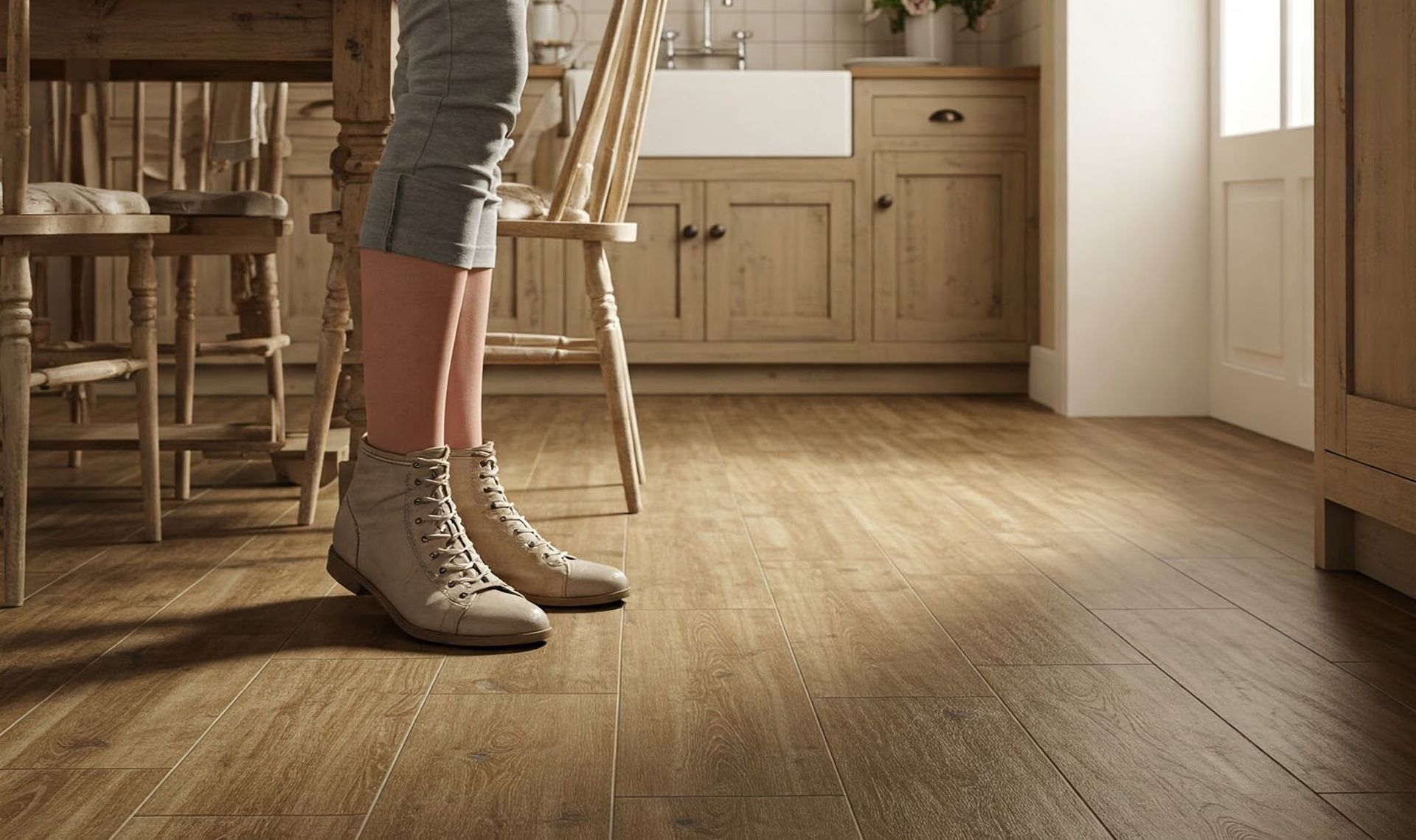
The Verdict: Tailoring Your Flooring Choice to Your Lifestyle
When it comes down to it, choosing between luxury vinyl flooring and hardwood isn’t about which one is “better” , it's about what fits your life.
If you love the idea of authentic wood grains, are prepared to maintain and protect your investment, and want a floor that can last generations, hardwood delivers unmatched natural beauty and prestige. It’s a timeless choice that speaks to tradition and craftsmanship.
If your lifestyle calls for practical durability, low maintenance, and water resistance, or if you’re working with a tighter budget but still want beautiful, realistic wood visuals,
luxury vinyl flooring is a smart, stylish solution that checks all the boxes for busy households.
At DE Custom Flooring, we take the time to understand your needs, preferences, and goals before making recommendations. We know that flooring is more than just a surface; it’s a foundation for memories, milestones, and moments that matter.
Whether you’re building a dream home, renovating an existing space, or upgrading a single room, we’re here to help you navigate the options and make a confident choice you’ll love for years to come.
Contact Us To Learn More!
We will get back to you as soon as possible.
Please try again later.


